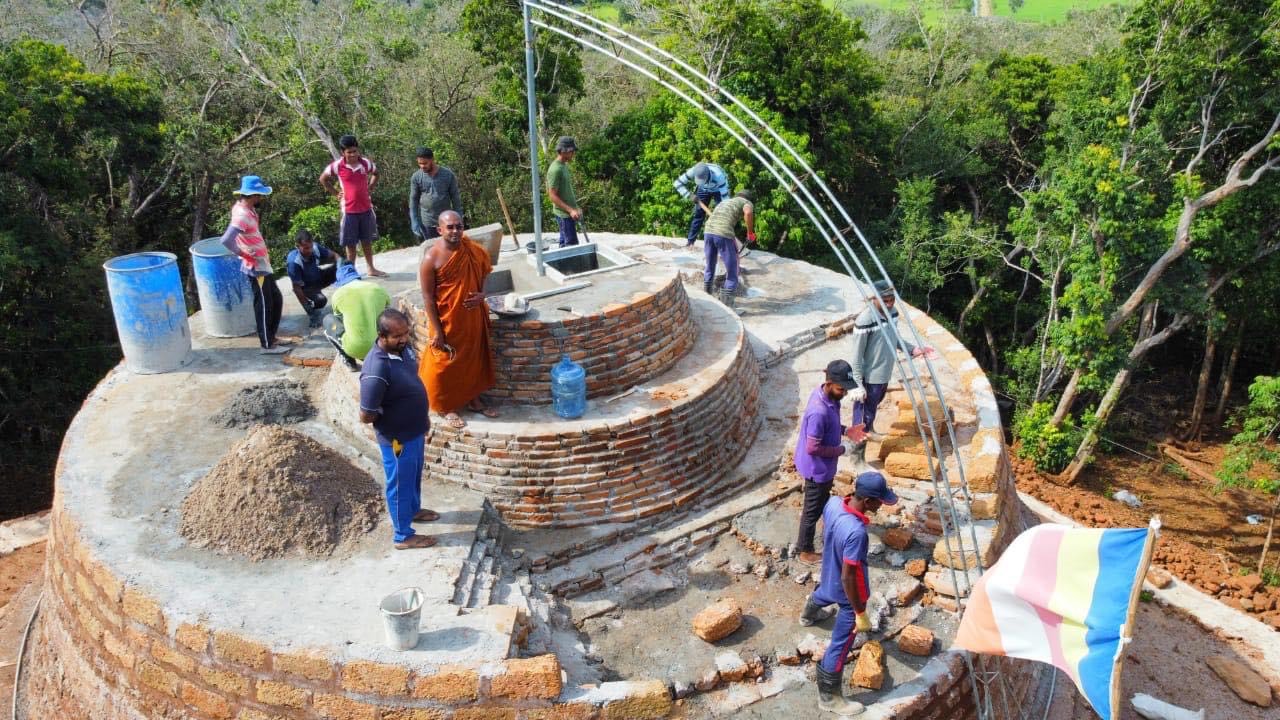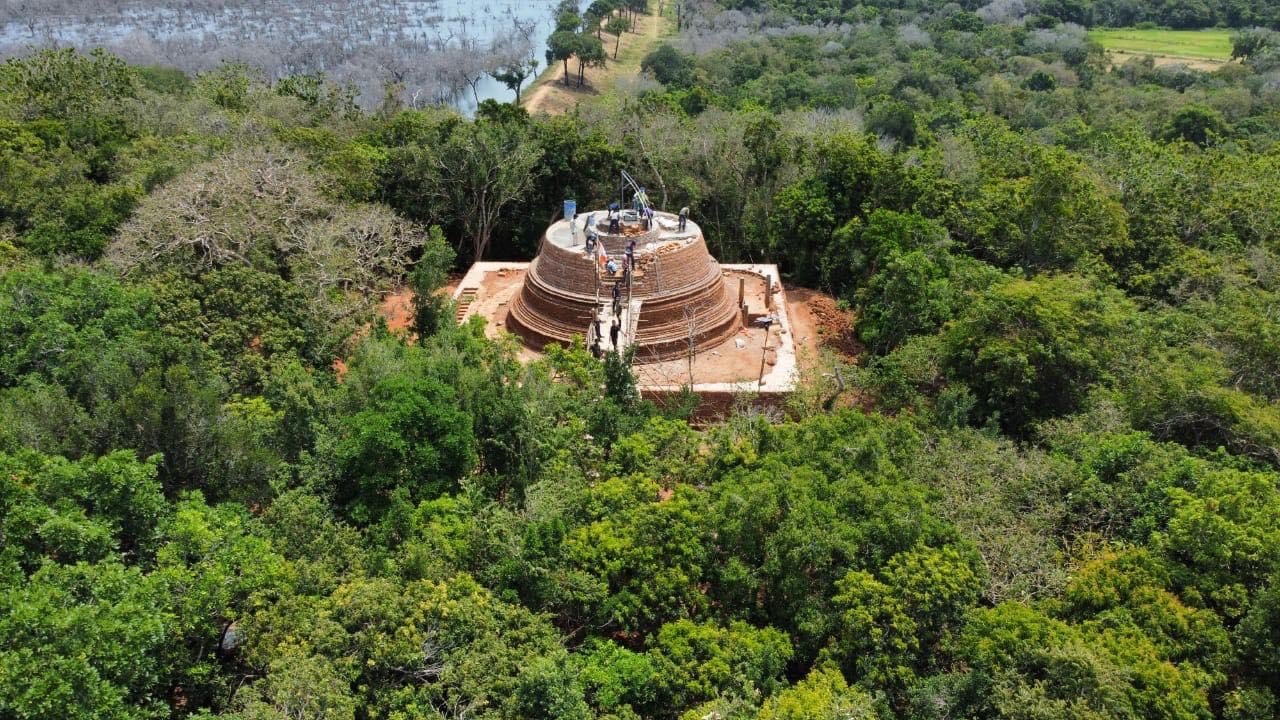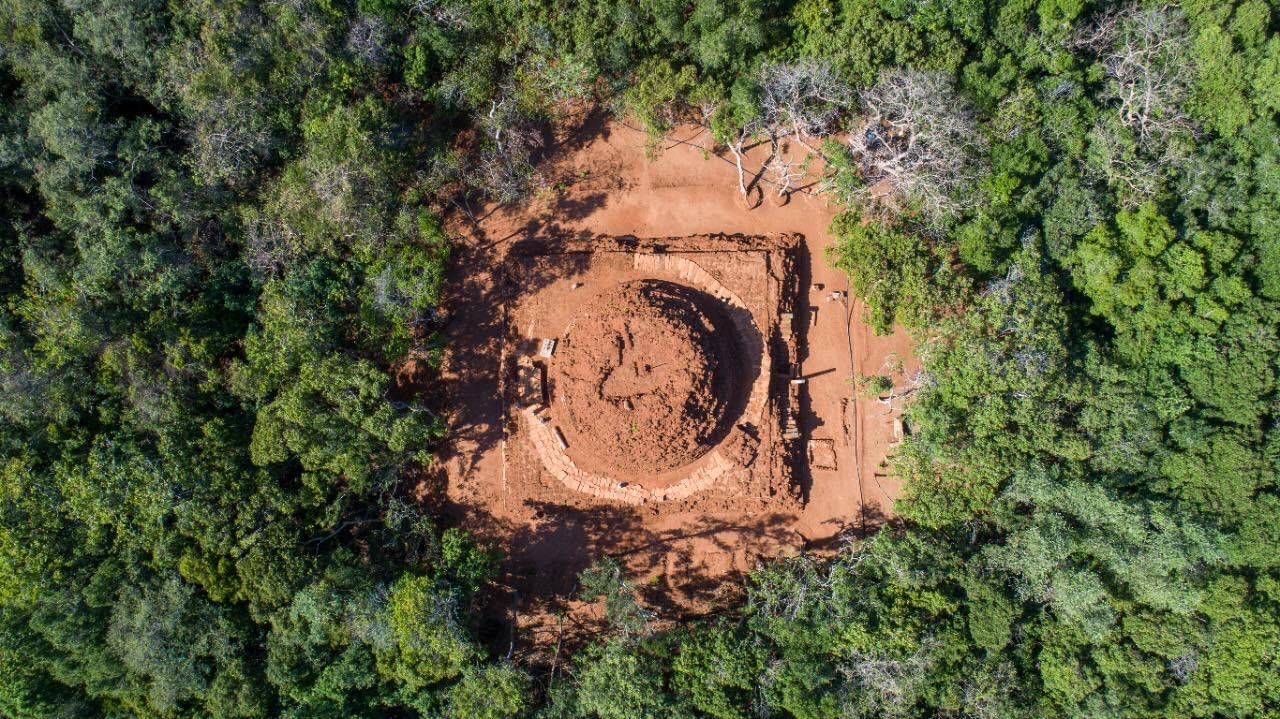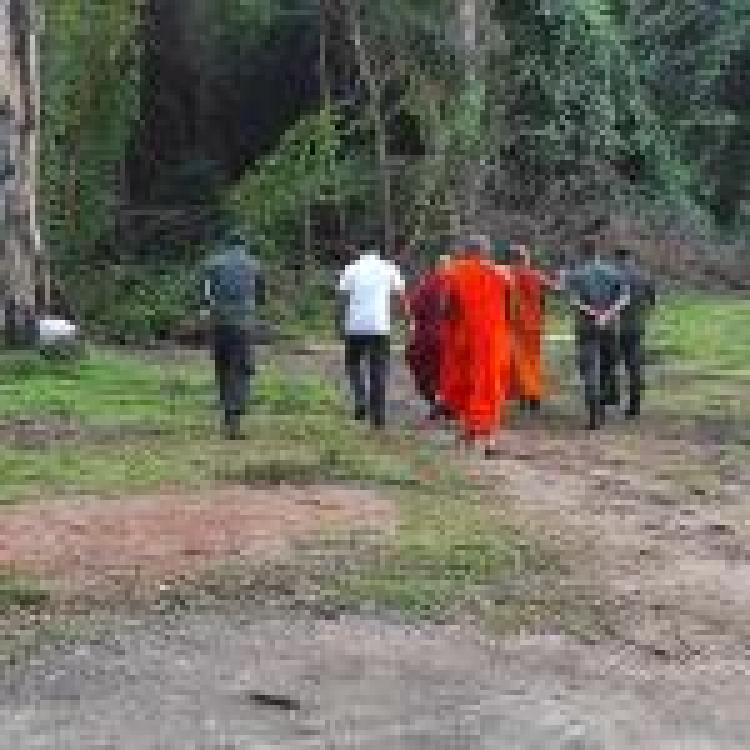
A dedication ceremony for a new Buddha statue is set to take place tomorrow with the assistance of the Sri Lankan army in Kurunthurmalai, Mullaitivu, in a further attempt to seize the site of an ancient Tamil temple.
The ceremony, where a Buddha statue carved in Kabok stone be consecrated, is expected to attract a large number of Sinhalese from the South, including senior Sri Lankan army officers, police officers and Buddhist monks.
The Athi Aiyanar temple, a native place of worship of Tamils located in the Thannimurippu area, has been targeted by intense landgrab efforts by Sinhala Buddhist monks over recent years. Their efforts have been met with fierce resistance from locals which in 2018 led to a court order decreeing that no changes could be made to the site. The court also stated that the archaeology department had abused its power in allowing Buddhist monks to survey the area.

In January 2021, Vidura Wickramanayaka, Sri Lanka's state minister for 'national heritage', accompanied by army soldiers and archaeology department officers, led an event at Kurunthurmalai, in which a new Buddha statue was placed and consecrated at the site of the Athi Aiyanar temple despite the court order banning them to do so. Since then, the Sri Lankan army and the archeology department have intimidated and banned local Tamils from entering the area.
Tamil National Alliance (TNA) spokesperson M A Sumanthiran and former Northern Provincial Councillor T Ravikaran have filed an interim injunction has been filed to stop any excavation work. However, the inunction has still not been granted.

In a recent report, People for Equality and Relief in Lanka (PEARL) highlight that since the end of the armed conflict in 2009, Sri Lanka's Director General of Archaeology "has ordered excavations and instructed district authorities to put up Buddhist structures on pre-existing Tamil worship sites and private Tamil lands, regardless of any opposition to it."
The advocacy organisation also notes how the state have justified Buddhisisation across the North-East by destroying and appropriating Tamil and Muslim places of worship to erect Buddhist shrines which in turn has provided "space and authority for Buddhist monks to influence the agenda" of the Sri Lankan government.


